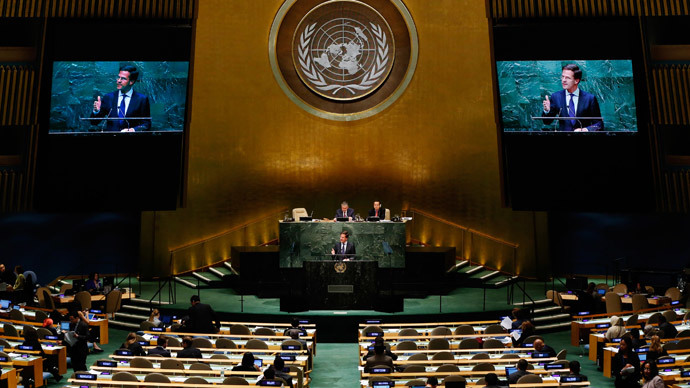Why the UN must lead our collective response to multiplying terrorist threats

The rapidly growing, multidimensional terrorist threats the world faces require a determined, collective response – which should be spearheaded by the UN.
Recent developments in various parts of the world underline this point. Terrorists are strengthening themselves with ideological backing, diversified funding, and are recruiting more and more followers. They gain from the growing radicalization of societies, often provoked and methodically “fed” by external actors. We are witnessing the growing global threat of a terrorist “Caliphate,” served by destructive elements of all sorts. These forces play a role of their own in regional conflicts, destroying opposition movements from inside, and feeding on sectarian and ethnical differences. Their strength is doubled by “mutually beneficial” relations with international organized crime. The illegal oil trade has become a substantial source of income for them, while the terrorist threat is becoming even more dangerous with the influx of so-called “foreign fighters” from Europe and elsewhere.
These processes are at their worst in the region of the Middle East and North Africa, a region where the ideological allies of Al-Qaeda, Jabhat an-Nusra and the like, including ISIS, are operating. They best operate in an environment of either weakened or failed state institutions, the latter resulting from the actions of outside powers in the first place. Today, terrorist zealots from Arab states, Europe, Russia and other former Soviet republics, North America, Japan, China and even Australia are joining terrorist groups, not only in Syria and Iraq, but also in Mali, Libya, Afghanistan and Pakistan. This must be stopped.
The evolution of these threats again proves that the international community has to provide a collective response, with the central coordinating role played by the United Nations. It must be done with strict adherence to international law and the basic principles of the UN Charter, including respect for state sovereignty and territorial integrity. Abiding by international law is especially important when use of force is required, as is the case with major threats to international security such as ISIS or Jabhat an-Nusra. We also assume that the fight against terrorists cannot and should not be used as a pretext to achieve unrelated geopolitical aims. Such scenarios only lead to growing tensions and further destabilization of the security situation.
Aleksandr Yakovenko is Russia’s Ambassador to the United Kingdom.
The statements, views and opinions expressed in this column are solely those of the author and do not necessarily represent those of RT.
The statements, views and opinions expressed in this column are solely those of the author and do not necessarily represent those of RT.













